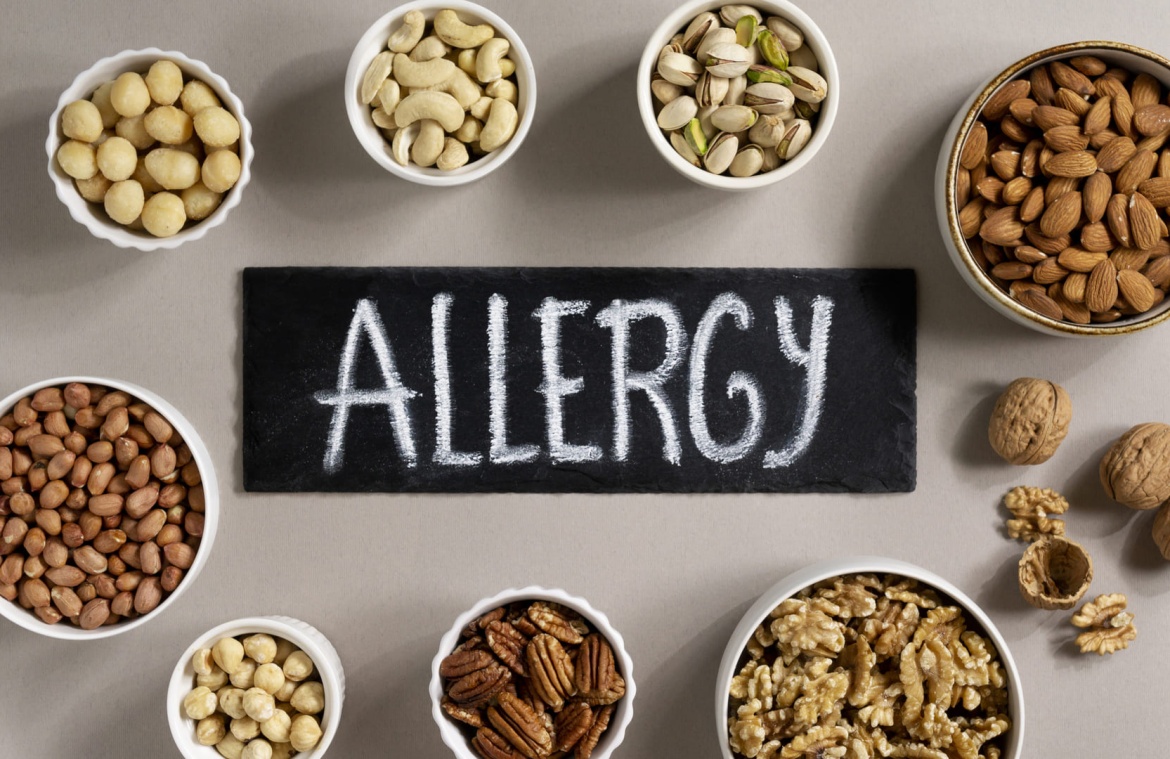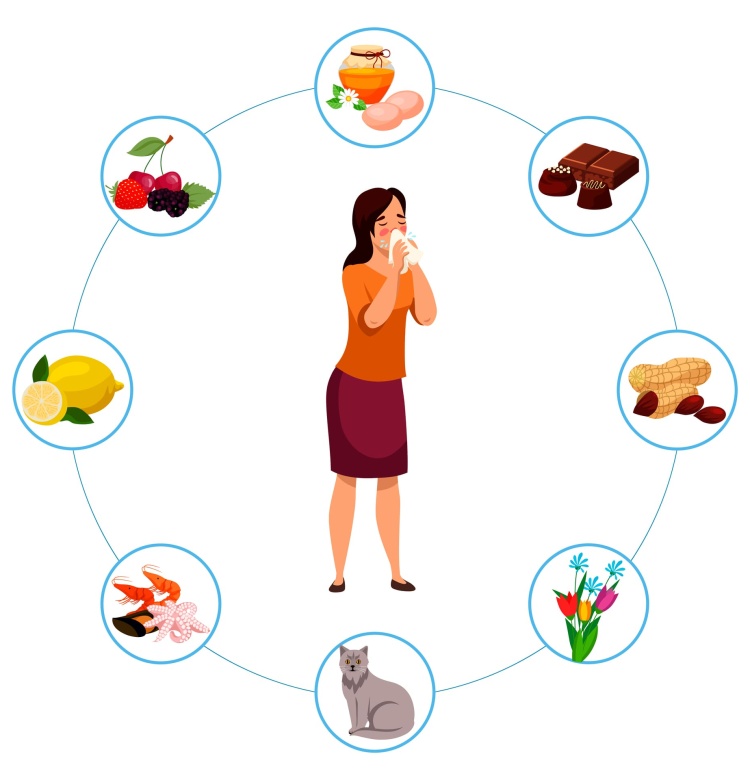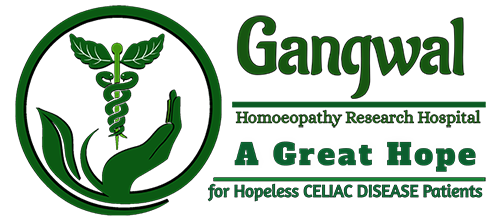
Food Allergy
A food allergy is an adverse immune reaction triggered by the ingestion of certain foods. When someone with a food allergy consumes a specific food or ingredient, their immune system mistakenly identifies it as harmful and produces an allergic response. This response can range from mild symptoms to severe, life-threatening reactions known as anaphylaxis.
Here are some key points to understand about food allergies:
Common food allergens: The most common food allergens include peanuts, tree nuts (such as almonds, cashews, and walnuts), milk, eggs, wheat, soy, fish, and shellfish. These allergens account for the majority of food allergies, but any food has the potential to cause an allergic reaction.

Symptoms: Food allergy symptoms can vary in type and severity. They can affect different body systems, including the skin, gastrointestinal tract, respiratory system, and cardiovascular system. Common symptoms may include hives, itching, swelling (especially of the lips, face, tongue, or throat), abdominal pain, diarrhoea, nausea, vomiting, wheezing, shortness of breath, and a drop in blood pressure. In severe cases, anaphylaxis can occur, which is a medical emergency.
Diagnosis: If a food allergy is suspected, a healthcare professional will typically take a detailed medical history, conduct a physical examination, and may order specific tests. Allergy testing, such as skin prick tests or blood tests, can help identify the specific allergens causing the allergic reaction.
Management: The primary management strategy for food allergies is strict avoidance of allergenic food or ingredient. This involves carefully reading food labels, being aware of potential cross-contamination risks, and taking precautions when dining out or preparing food. In cases of severe allergies or a history of anaphylaxis, individuals are often prescribed an epinephrine auto-injector (e.g., EpiPen) to be used in case of accidental exposure.
Food intolerances vs. food allergies: It’s important to distinguish between food allergies and food intolerances. Food intolerances, such as lactose intolerance or gluten sensitivity, do not involve the immune system and are generally less severe than food allergies. Intolerances typically result in digestive symptoms rather than allergic reactions.
Treatment: Currently, there is no cure for food allergies. Treatment focuses on managing symptoms and avoiding allergenic foods. In cases of accidental exposure or severe reactions, immediate medical attention is necessary. Research is being conducted on potential treatments, such as oral immunotherapy, but these approaches are still under investigation and should only be pursued under medical supervision.
Education and awareness: Education plays a crucial role in managing food allergies. Individuals with food allergies, as well as their families, friends, and caregivers, should be educated on how to recognize symptoms, respond to allergic reactions, and prevent accidental exposure. Building awareness within communities and schools can also help create safer environments for those with food allergies.

If you or someone you know has a food allergy, it is essential to work closely with a healthcare professional, such as an allergist or immunologist, to receive a proper diagnosis, guidance on management strategies, and emergency care planning.
Treatments
The primary treatment for food allergies is strict avoidance of the allergenic food(s). For individuals with food allergies, even tiny amounts of the allergen can trigger a potentially severe allergic reaction. However, there are some additional…









